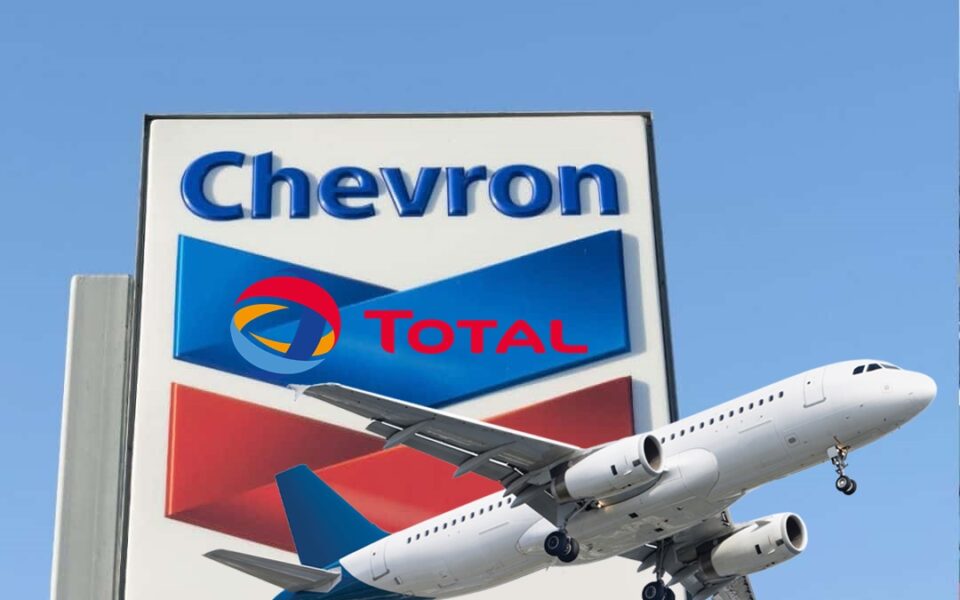Energy giants TotalEnergies and Chevron said Friday they would leave Myanmar following pressure from human rights groups to cut financial ties with the military junta since last year’s military coup.
Total cited in a statement the “worsening” human rights situation in the country in its decision to pull out of Myanmar, a move that deprives the junta of a key source of revenue.
The French firm and US oil major Chevron will withdraw from the Yadana gas field in the Andaman Sea, which provides electricity to the local Burmese and Thai population.
“The situation, in terms of human rights and more generally the rule of law, which have kept worsening in Myanmar… has led us to reassess the situation and no longer allows TotalEnergies to make a sufficiently positive contribution in the country,” the French oil company said.
US energy giant Chevron said it was leaving “in light of circumstances in Myanmar”.
“We have reviewed our interest in the Yadana natural gas project to enable a planned and orderly transition that will lead to an exit from the country,” said spokesman Cameron Van Ast.
Human Rights Watch (HRW) says natural gas projects are Myanmar’s single largest source of foreign currency revenue, generating more than $1 billion every year.
But Total said it had not identified any means to sanction the military junta without avoiding stopping gas production and ensuing payments to the military-controlled Myanmar Oil and Gas Enterprise (MOGE).
‘Strong message’
The company had announced last year that it was suspending cash payments to its joint venture with the army, Moattama Gas Transportation Company Limited (MGTC).
Total paid around $230 million to the Myanmar authorities in 2019 and another $176 million in 2020 in the form of taxes and “production rights”, according to the company’s own financial statements.
Total said Friday that it had tried “insofar as is materially and legally possible” to limit financial flows received by the MOGE.
But it said it was “materially impossible” to prevent revenue flows as Thailand’s national energy company PTT made most gas sale payments.
PTT chief executive Montri Rawanchaikul on Friday said the company was “carefully considering” its direction following TotalEnergies’ announcement.
HRW welcomed the French company’s withdrawal and called for governments to “prevent any other unscrupulous entities from entering the market”.
“Total’s announcement does highlight how pressure from investors and human rights focused business can work. Governments no longer have an excuse to delay imposing targeted sanctions on oil and gas entities,” HRW Myanmar researcher Manny Maung told AFP.
Myanmar’s shadow national unity government said the news sent a “very strong message” to the ruling junta.
“Other companies must follow Total’s example to put even more pressure on the generals to stop their bloody repression,” said shadow minister Naw Susanna Hla Hla Soe.
Western sanctions
Around 30 percent of the gas produced at Yadana is sold to the MOGE for domestic use, providing about half of the largest city Yangon’s electricity supply, according to TotalEnergies.
About 70 percent is exported to Thailand and sold to PTT.
TotalEnergies owns almost one-third of the gas field, which it has operated since 1992 and produces around six billion cubic meters of gas per year.
Chevron holds a minority interest in the project. Its local affiliate, Unocal Myanmar Offshore Co., has been in Myanmar since the early 1990s.
Total will continue to operate the site for the next six months at the latest until its contractual period ends.
International pressure has been building against Myanmar’s military junta since last year’s coup ousted civilian leader Aung San Suu Kyi.
Western powers have imposed targeted economic sanctions on the military.
The junta has vested interests in large swathes of the country’s economy, from mining to banking, oil and tourism.
Norwegian telecoms operator Telenor this week sold its stake in a Burmese digital payments service over the coup.
Italy’s Benetton and Sweden’s H&M suspended all new orders from the country last year.
More than 1,400 civilians have been killed as the military cracks down on dissent and press freedoms, according to a local monitoring group, and numerous anti-junta militias have sprung up around the country.
Suu Kyi this month was convicted of three criminal charges and sentenced to four years in prison and now faces five new corruption charges.
Myanmar’s military has also faced accusations of serious human rights violations over its treatment of the mainly Muslim Rohingya minority ethnic group.




